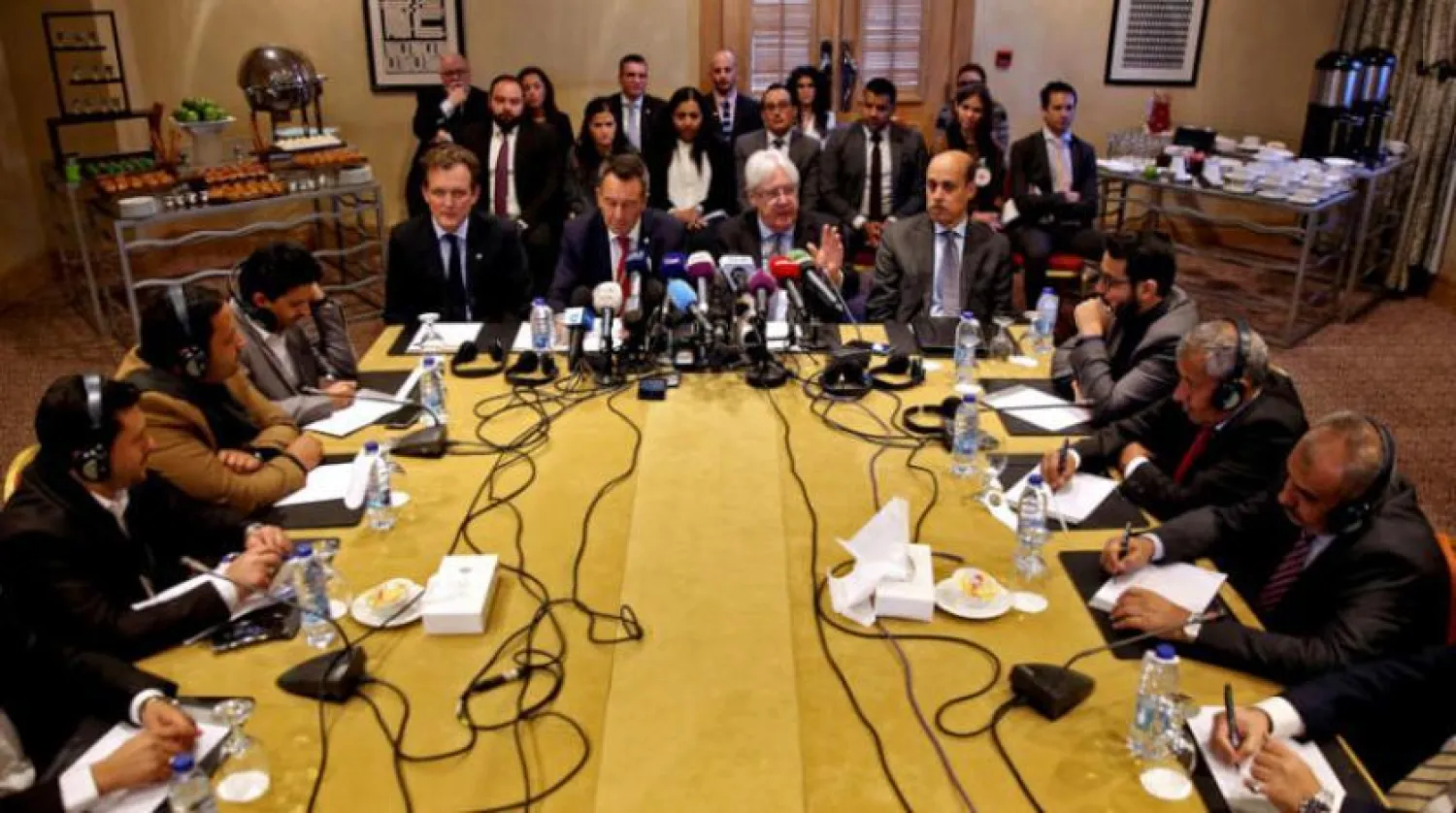A delegation from the internationally-recognized Yemeni government will head to Geneva on Thursday to join prisoner exchange talks with Iran-backed Houthis, a government official familiar with the negotiations said.
The talks are being sponsored by the office of the UN envoy to Yemen, Martin Griffiths, and the International Committee of the Red Cross (ICRC).
A UN plane landed in Sanaa on Tuesday with the mission of transporting the Houthi delegation to the last round of talks in Switzerland, with the hopes of a breakthrough leading to the release of the first batch of 1,420 prisoners.
According to the official Saba News Agency, Undersecretary of Human Rights Ministry Majed Fadael confirmed that the Yemeni government's team charged with negotiating the deal with the Houthi militias under the Stockholm Agreement is going to Geneva.
Fadael, who is also a member of the government delegation, told Saba that the meeting aims to explore a mechanism to release all detainees from both sides.
A deal reached in the third round of the negotiations in Jordan stated that 1,420 prisoners shall be released in the first phase, followed by others until all detainees are set free.
“There are no new talks. We are only discussing what we had arrived to in the third round of talks in Amman and this involves the release of 1,420 detainees in the first stage, building up to the point where a total swap is implemented through others,” Fadael told Asharq Al-Awsat last August.
“We have exchanged lists of names, and the swap is still underway, but we are yet to finalize the agreement on all names. There is a sufficient number of names that have been approved though and we insist that the swap includes 1,420 detainees,” Fadael added.









